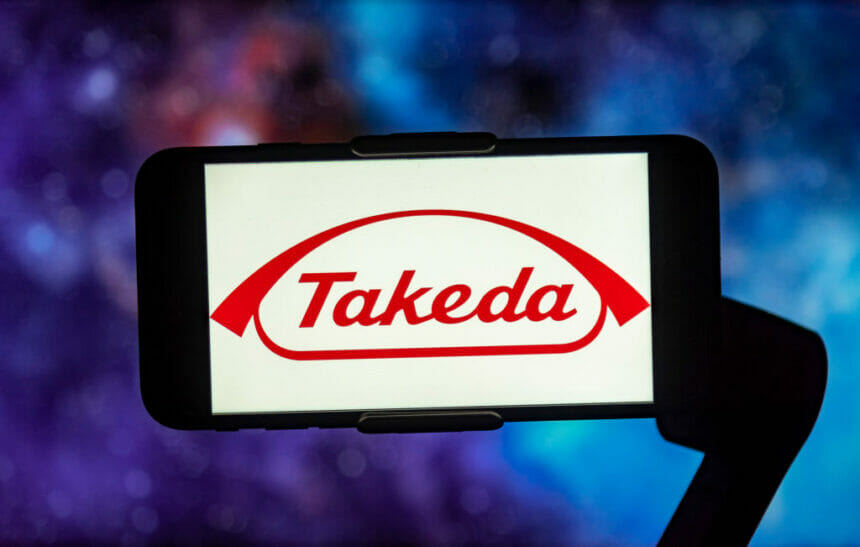The Food and Drug Administration greenlit Takeda’s Fruzaqla, a biomarker-agnostic pill for refractory metastatic colorectal cancer (mCRC), the regulator said Wednesday.
Fruzaqla (fruquintinib) is the first targeted therapy to be cleared by the agency for mCRC for an all-comer population (i.e., regardless of biomarker status) in more than a decade, Takeda noted.
The approval also marks the first novel chemotherapy-free option — and the first to offer a survival benefit despite treatment with prior therapies — in over 10 years. That’s important because, due to their condition as well as the therapies they have been exposed to, patients with metastatic disease are often fragile and fatigued.
“For far too long, healthcare providers and patients have had limited options” for mCRC therapy, stated Teresa Bitetti, president of Takeda’s global oncology business unit.
The approval is based on two Phase 3 clinical trials — dubbed FRESCO and FRESCO-2 — in which Fruzaqla led to significant improvements in overall survival (OS), with corresponding improvements in progression free survival, versus placebo plus best supportive care. Median OS was 7.4 months for those treated with Fruzaqla versus 4.8 months among the placebo group in FRESCO-2, and 9.3 months versus 6.6 months in FRESCO.
The drug, which was granted fast-track status by FDA in 2020, is a selective oral inhibitor of VEGFR -1, -2 and -3 — all of which play a role in the ability of tumors to form new blood vessels — and was designed to limit off-target kinase activity. Regulatory applications are pending in Europe and Japan.
Fruzaqla was licensed from China biotech Hutchmed earlier this year in a pact worth up to $1.1 billion. Takeda gave Hutchmed an upfront payment of $400 for the rights to develop and commercialize the drug beyond China, where it’s currently approved. The Osaka-based drugmaker also committed up to $730 million in additional milestone potential payments, as well as royalties on net sales.
It’s been a mixed bag for Takeda in the gastrointestinal area of the pipeline, where two other experimental assets were effectively halted.
The company ended a partnership with Theravance Biopharma after seven years, following the failure of post-operative gastrointestinal dysfunction drug TAK-954 in a Phase 2b trial. It also culled development of sibofimloc, a Crohn’s disease drug it had been working on with the biotech Enterome.
On the bright side, Takeda is now two for three in expected second-half U.S. approvals.
In addition to Wednesday’s Fruzaqla OK, on Thursday the company also received a thumbs-up for Adzynma (TAK-755), for adults and children with the rare blood clotting disorder congenital thrombotic thrombocytopenic purpura (cTTP). The Japanese drugmaker is expecting TAK-721, for eosinophilic esophagitis (EoE), to cross the regulatory finish line by year’s end.
Late-stage colorectal cancer is an area of great unmet need. In the U.S., about 153,000 new cases of CRC will be diagnosed this year, representing 7.8% of all new cancer cases, per stats cited by Takeda.
Roughly 70% of CRC patients experience metastatic disease, whether at diagnosis or after treatment, and metastases are the main cause of CRC-related mortality. Worldwide, CRC is the third-most prevalent cancer and was associated with 935,000 deaths in 2020, according to the International Agency for Research on Cancer.
For a May 2024 article about Takeda embarking on $900M restructuring effort due to slumping profits, click here.







